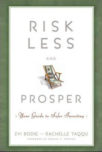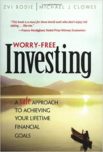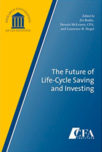Q & A
Question:
If one was to use a TIPS mutual fund inside a retirement vehicle, what do you think is a reasonable real return to use for planning purposes?
Answer:
I have been using 2%, but recently the real rate has dropped much lower. To see the current TIPS yield curve visit my Market Indicators page. The average duration of a TIPS mutual fund is now about 10 years. The 10 year TIPS yield is 1.13%.
Question:
I am a grad student earning my degree in family financial planning. In a current course, an article featuring your assertion on 100% bond portfolio was presented and argued. During the interview, you offered a reconsideration of the common presumption that is an investor would likely retire at 65 and that rule-of-thumb savings is 10% of income. You advised one to consider a later retirement and 20% savings as a means to prudent retirement savings goal. With respect to the 20% savings, some took exception — thought of this as unreasonable, thus unlikely and a flawed argument. I disagree. But then again, I appreciate the art of ‘frugal’, so I can easily fathom a 20% or better savings plan. Can you elaborate on why you feel 20% (vs. 10%) savings is reasonable, without increasing income?
Answer:
The right approach to saving for retirement is to do a careful analysis based on your own circumstances. Do not rely on rules of thumb. My colleague, Larry Kotlikoff, calls these “rules of dumb,” and I agree with him. Take a look at his planning software for free at eslpanner.com.
The thrust of my article was to say that you should not assume a high rate of return on investments in doing your planning. You should start with a baseline plan that is as safe as possible. You do this by investing in inflation-proof TIPS. Currently they are returning a real rate of return of between 1% to 2% per year, depending on maturity. You can check current interest rates on my Market Indicators page. For most people this results in a higher required saving rate than when you assume higher rates of return.
Question:
I am planning to switch all of my mutual fund accounts to TIPS. Is it worth waiting a few months to see if interest rates go up? Right now a 10 year TIPS pays less than 2% interest, I think.
Answer:
No one I know, including myself, can forecast interest rates. All I can say is that there is great uncertainty about inflation and TIPS interest rates. They could go down from their current level. Therefore, as a very risk averse person, I myself would get into TIPS now and not speculate on rates going up. When you invest, remember that new issues of TIPS have better protection of your investment than seasoned (old) TIPS.
Question:
I read your comments about inflation protected bonds in the current issue of US News. Do you recommend purchasing bonds directly from the Treasury, or would an inflation protected bond fund work just as well, if so which one?
Answer:
Purchasing bonds gives you greater control over the timing of the inflation-protected cash you receive. A mutual fund has no specific maturity date and therefore you never know for sure what its payoff will be in the future. Although it will serve as a general inflation hedge, the fund’s value will have some volatility and therefore some risk.
Question:
Given your philosophy of investment safety, I was expecting to see a discussion of Single Premium Immediate Annuity (SPIA) as another avenue to reduce risk, although clearly not with the safety of U.S. Treasury vehicles. Have you written about this, and if so, could you point me to the reference?
Answer:
I am a strong advocate of inflation-protected SPIAs.
Question:
Your worry-free investing concept is very interesting and it totally changed my mind as the media is succeeding in convincing me as an ordinary investor to invest in stocks in order to have a good retirement. I am over 55 and still working but your trustworthy advice is not too late as I could continue to lose more money by investing in stocks only. I look forward to hearing from you, Zvi. You dare to speak the truth and disregard the enemies you have made among so-called “professional money managers.” In Canada, what is the equivalent of TIPS?
Answer:
In Canada, the equivalent of TIPS are Real Return Bonds (RRBs). The Canadian government started issuing RRBs several years before the US government did. The chief proponent of RRBs for investors like you is Graham Cook, a professional financial planner who is a longtime friend of mine.




